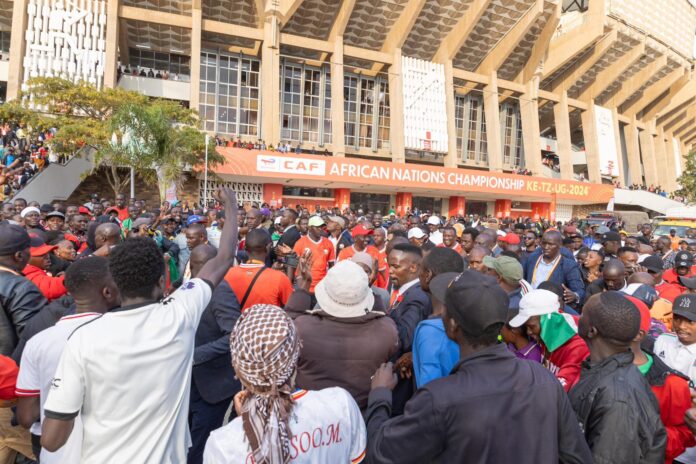As Kenya plays host to the CHAN 2024 tournament, football fever has gripped the nation. But for residents living near Kasarani and Nyayo Stadiums, the excitement has come with a wave of disruptions that have transformed everyday routines.
With international teams and dignitaries in town, security around the stadiums has gone up several notches.
Roadblocks, checkpoints, and patrols are the new normal, particularly on match days. While necessary, these measures have made movement difficult and left locals feeling boxed in.
Public transport users have found themselves walking longer distances or getting stranded as matatu routes are diverted or cut altogether without notice. PSV operators are also taking a hit, managing fewer trips due to congestion and rerouting.
Whether it is Thika Superhighway or Lang’ata Road, getting around has become a gamble. Match-day traffic snarls begin hours before kick-off, forcing people to rethink travel plans or cancel errands altogether.
For those closest to the stadiums, match days mean booming music, blaring horns, and round-the-clock cheering. With little reprieve even behind closed doors, quiet moments have become rare.
Silver lining for Enterprising Kenyans.
Still, the tournament has brought opportunity. While the disruptions have been real, many locals have found clever ways to turn inconvenience into income. With fans, teams, and media personnel flooding the area, the demand for affordable accommodation has shot up.
Some residents have cleared out spare bedrooms or moved in with relatives temporarily just to list their homes on short-stay rental platforms. The quick bookings and upfront payments have offered a much-needed injection of cash, especially for households struggling to keep up with the rising cost of living.
Parking, usually a mundane detail of urban life, has suddenly become a money-making venture. With limited space inside the stadium and surrounding areas, spectators have been eager to pay for secure spots in nearby compounds.
Residents with driveways or open yards are now earning daily by charging for parking. Some have even added basic security measures like lights or informal attendants to justify premium rates. It is not uncommon to hear of someone making more in parking fees over a weekend than they usually earn in a month.
The food scene has also come alive. Local vendors have taken advantage of match days by setting up temporary stalls near the stadium. From grilled meats to bottled water and snacks, the sales are brisk.
Others are cooking from home and delivering food directly to guest houses and fans. Even informal pop-ups selling tea and mandazi in the early mornings are reporting record business. It is a chance not just for profit, but also to showcase Kenyan street food culture to visiting fans.
Then there is the merchandise hustle. Youths have started selling everything from national team jerseys and hats to whistles and flags. A few have gone further by offering custom souvenirs or team-themed face painting.
It is a burst of entrepreneurship driven more by instinct than planning, but it reflects the resilience and creativity of communities looking to make the most of a rare international event.
For many, CHAN 2024 is a moment to hustle and earn in a season of economic uncertainty.



















